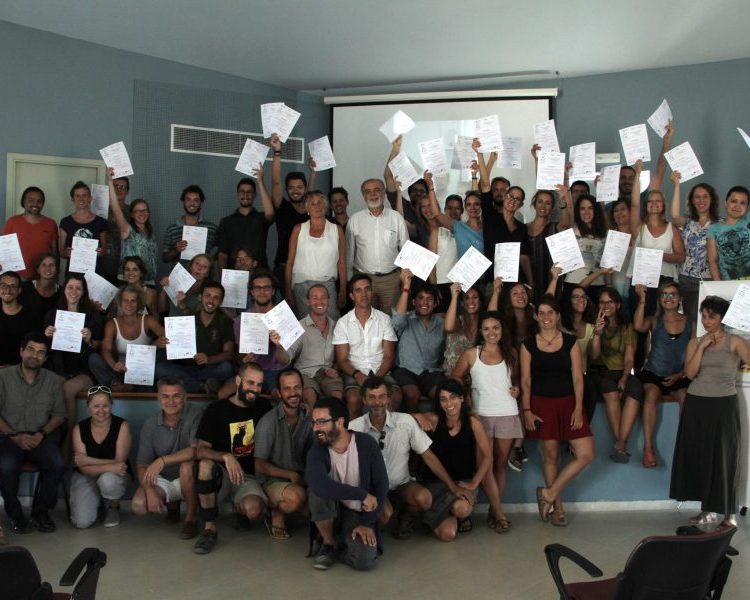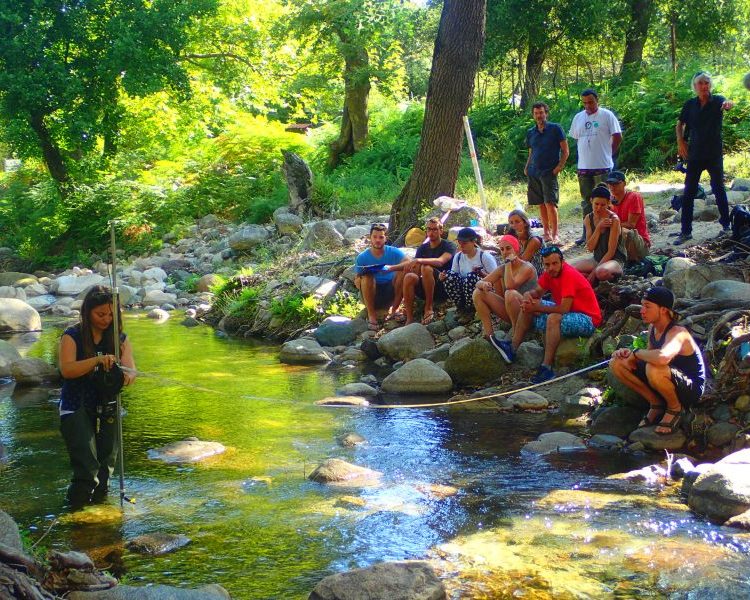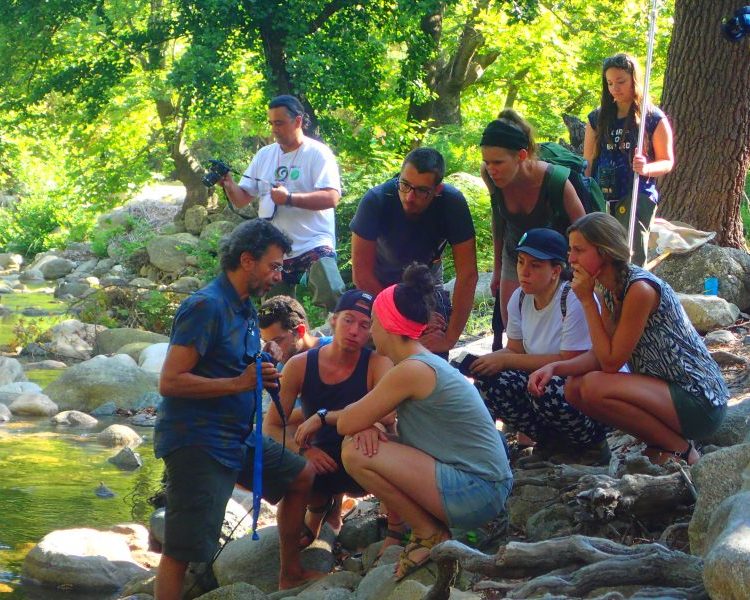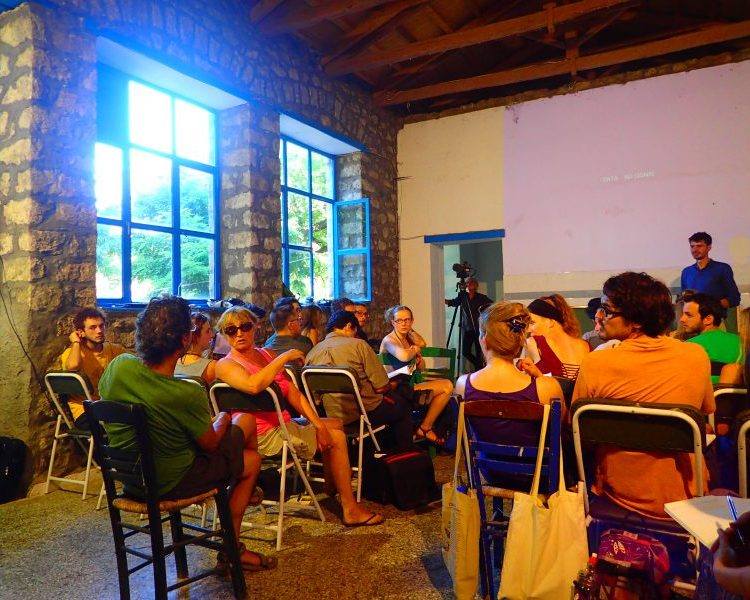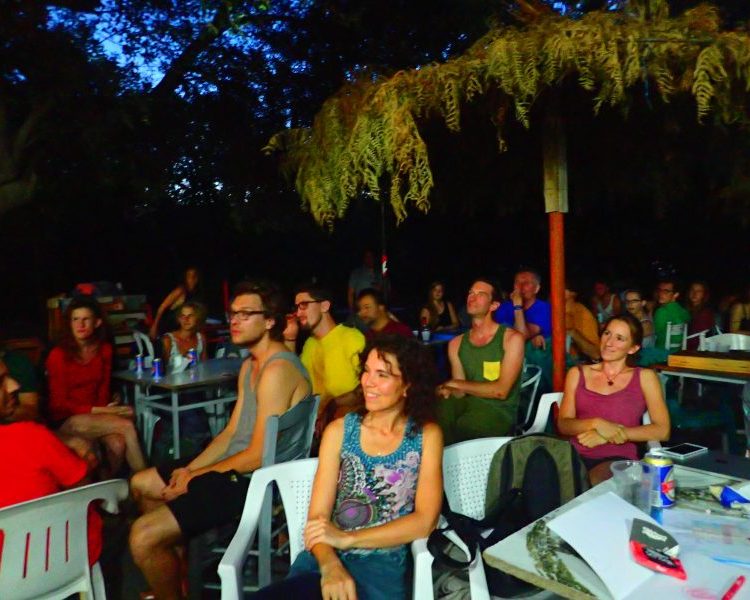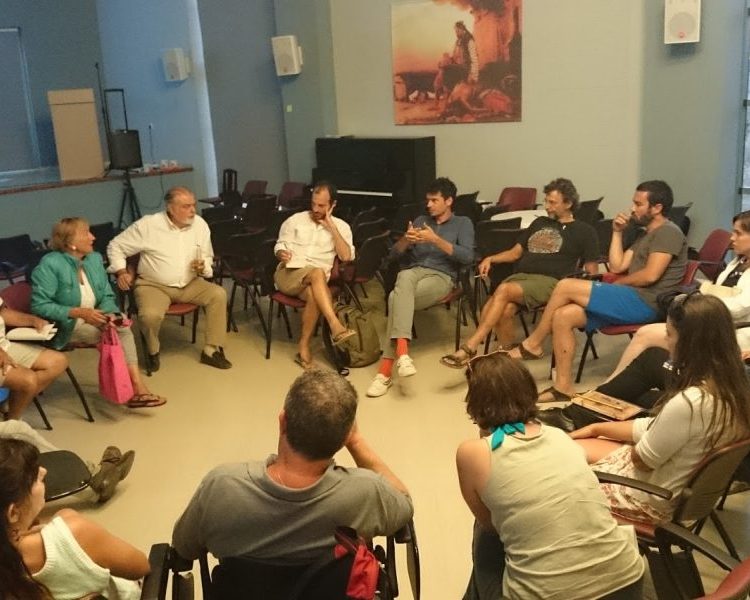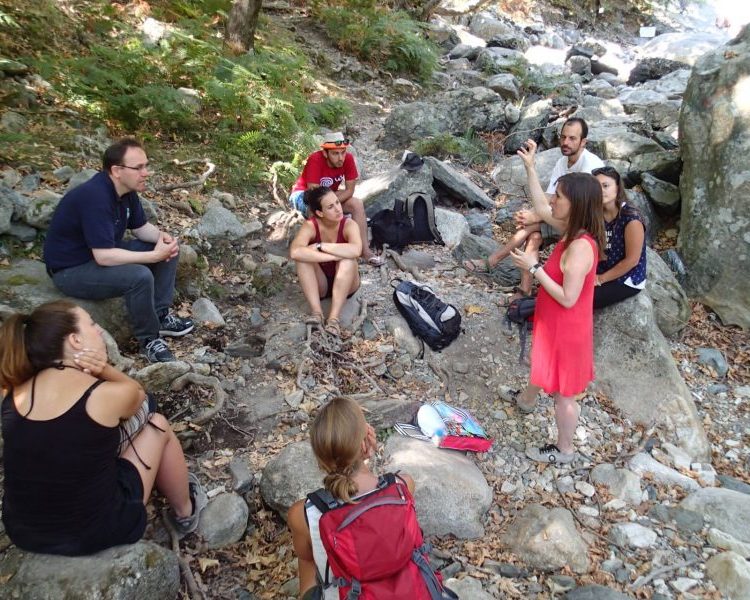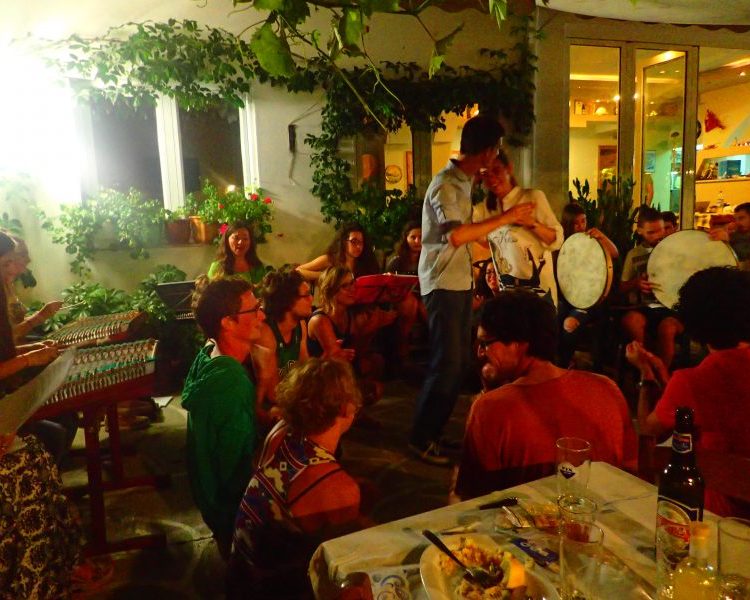In July 2016, the third “Summer University” on “Integrated Management Approaches for Biosphere Reserves and other Designated areas” was taken place on Samothraki. The summer University was provided a high quality education to post graduate students and young scientists from European – Balkan countries and beyond on Integrated Management practices of Biosphere Reserves and various other categories of protected areas (National Parks, Areas Natura 2000, etc.). Its main aim was to deepen the understanding of the value of Biosphere Reserves, as “laboratories” and “catalysts” of Sustainable Development. The Summer University specifically aims are to highlight the rich natural and cultural diversity and heritage of the island of Samothraki and support the proposal for its inclusion in the World Network of Biosphere Reserves (MAB/UNESCO). The Summer University provided an innovative multidisciplinary and experiential intensive 12 days training that was designed with the cooperation and synergy of Research Institution and Networks, Universities, National and Local Authorities, NGOs, as well as key UNESCO braches. Participants, were at 70-75 in total, were attended daily lectures in plenary, followed by intensive guided group work, in two directions
Course A “Aquatic & Social Ecology: Theory and Practice”, hosted by the Hellenic Centre for Marine Research (HCMR), the Vienna Institute of Social Ecology and the University of Patras, was designed as a 2-week course with the aim to learn and apply aquatic ecology and social ecology approaches in a local setting while supporting current research and building synergy with the UNESCO Biosphere Reserve process.
Theoretical input were provided by renowned scholars: Prof. Marina Fischer-Kowalski (Vienna Institute of Social Ecology, Alpen Adria University), Prof. Klement Tockner (Leibniz Institute of Freshwater Ecology and Inland Fisheries, Berlin), Prof. Michael Scoullos (Department of Chemistry, University of Athens, President of the Greek National Committee of UNESCO MAB), and Ass.-Prof. Núria Bonada (Department of Ecology, University of Barcelona).
For the most part, students were splited in small groups and conduct desk and fieldwork in an array of social and natural science methods frequently used in socioecological and aquatic research. Each method was practically demonstrated by a tutor guiding the small student groups throughout the field work. Each student participant will focus on one (and was exposed to another 1-2) of the following methods and research questions:
- Animal numbers and their drivers on the island: livestock counting and estimation of livestock densities on different habitat types by distance sampling. Analysing farmers’ income by sources (utilization of animal products on markets, in subsistence, from state subsidies). Creating an empirically based estimate of current livestock numbers and putting it into perspective of causes and impacts (Tutor: Raffael Hickish)
- Problems of overgrazing and soil erosion: Analysing the impacts of agricultural land use and land-cover change on the vegetation cover. Mapping vegetation cover and erosion sites, discussing landscape change, its drivers and impacts. Exploring the outcomes of recent animal feed seeding experiments (Tutor: Tamara Fetzel)
- Exploring the current social metabolism of the island in terms of material and energy flow analysis by field observation and expert interviews, with a special focus on the fate of wastes. Exploring potential social tipping points (undersupply that might cause population decline) in the health and education services. Structural legal and statistical analysis and stakeholder interviews (Tutor: Simron Singh)
- Local initiatives and their chances to drive socioecological change. Oral narratives and interviewing with local initiatives on whether cultural change toward collaboration may occur and widen the range of possible solutions even during a prolonged economic deadlock (Tutors: Aggelos Varvarousis, Panos Petridis)
- Aquatic chemistry and macroinvertebrate fauna of Mediterranean streams. Field protocols, field measurements and sampling campaigns in streams of Samothraki will be carried out in order to explore biodiversity issues, assess their ecological status and interpret the factors and processes that control it (Tutors: Nikos Skoulikidis, Anastasia Lampou, Momir Paunović)
- Stream riparian and landscape module. Visual survey techniques were utilized to collect floral, wildlife and anthropogenic degradation data to assess ecosystem integrity at the riparian corridor and landscape scale. Three survey methods were completed at a number of stream sites (Tutors: Stamatis Zogaris, Vasiliki Vlami, Panayiotis Dimopoulos)
- River hydrology, physical processes, stream hydrologic assessment, watershed assessment. Water resources management, watershed management. Survey to conceive the island’s water resources management scheme, including an estimation of water uses and understanding of common irrigation practices. (Tutor: Ierotheos Zacharias)
- Visual survey techniques, protocols and indicators for the ecological assessment of the Mediterranean sublittoral zone, with emphasis on benthic ecosystem structure and functions. Fieldwork to collect data within the island’s marine Site of Community Importance (GR1110012). Analyze and report on identified status and trends (Tutors: Maria Salomidi, Yiannis Issaris, Eleni Kytinou)
Course B “Integrated Water and Coastal Management – Educational and Participatory Approaches”, hosted by the MIO-ECSDE and the UNESCO Chair and Network of UoA, with in co-organisation of the Global Water Partnership (GWP) and UNESCO Regional Bureau for Science and Culture in Europe Venice (Italy).
The trainees attended daily a 2h plenary session, where the most important issues were presented by the invited lectures. Then on the two complementary directions of the Summer University (Course A and B) moved on in parallel.
Throughout the whole training the participants were working on a group assignment to develop recommendations for the sustainable management and development of the island, having as a reference point two main documents i) the Samothrace Nomination folder to the UNESCO/MAB BR Programme and ii) the IMF methodology combining also all their findings throughout the course of the summer university. The trainees combined all their findings throughout the 2-week long Summer University in targeted presentations during the last day.
All trainers and organisers have produced a joint statement in support to the accession of Samothraki to the Directory of the World Network of Biosphere Reserves (WNBR).
Further Information
http://www.medies.net/staticpages.asp?aID=1063&overRideCategory=1
Press Release from the municipality of Samothraki (in Greek)
Reports
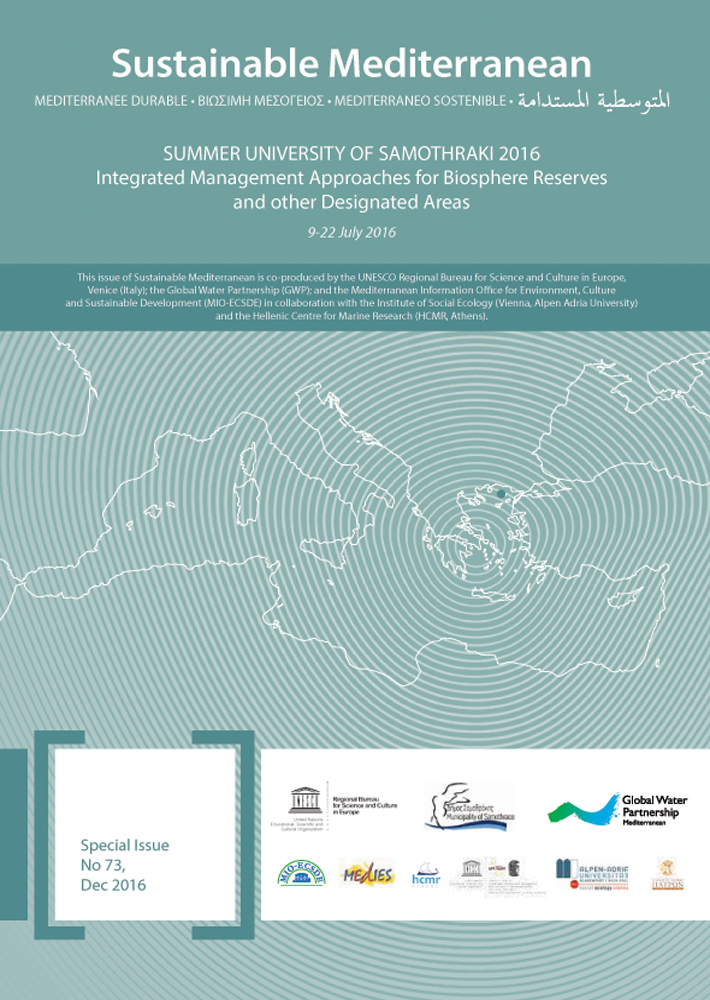 Sustainable Mediterranean, Issue No 73, Dec 2016
Sustainable Mediterranean, Issue No 73, Dec 2016
